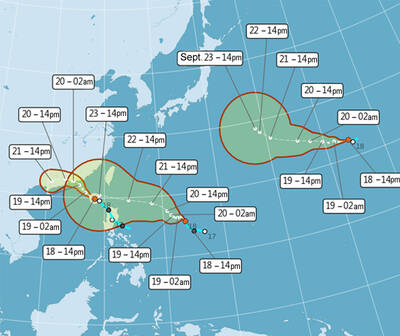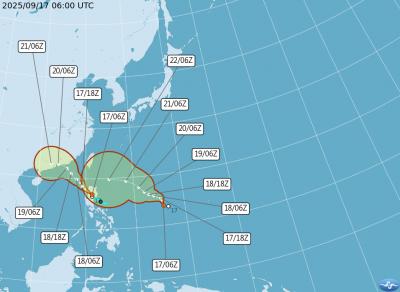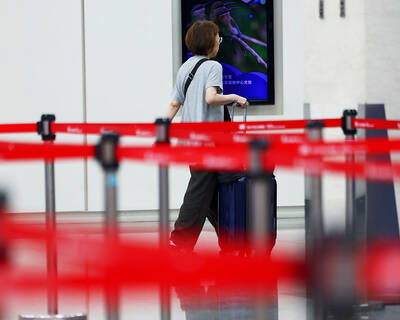There is likely to be a new “crisis in relations” between Taiwan and China in the coming months, said Denny Roy, a senior fellow at the East-West Center in Honolulu.
In a study published in the US journal National Interest, Roy urged Washington to support Taiwan.
He said that coercion from the People’s Republic of China (PRC) against democratic Taiwan would challenge US reliability.
“Taiwan should be considered a crucial place to make a stand, not a liability to be abandoned in a strategic retreat to more defensible ground,” Roy wrote.
He said that if Taiwan chooses to resist pressure to unify with China, Washington should support it with “robust arms sales.”
Roy predicted a near-term crisis that would pose “acute difficulties” for the US.
“Abandoning Taiwan to involuntary absorption, however, would signal to the region the end of Pax Americana,” he said.
The Democratic Progressive Party stands a good chance of capturing the presidency next year, Roy said.
“Beijing would see such a government as separatist, instantly intensifying Chinese fears that Taiwan is slipping away and that dramatic PRC counteraction is necessary,” he said.
He said that Chinese leadership under President Xi Jinping (習近平) now appears less constrained than before by the need to appear accommodating.
“Failing to deliver on Taiwan could create a vulnerability for Xi that his enemies would be quick to exploit,” Roy said.
This could impel Xi to demand that Taipei open political negotiations and that such a demand could lead to a quick rebuff, humiliation and a new Taiwan Strait crisis, he said.
Roy said that as difficult as defending Taiwan from Chinese attack would be, shrinking from Taiwan’s defense would seriously endanger the US’ agenda in the Asia-Pacific region.
“Conceding Taiwan to a Chinese sphere of influence would not buy peace with China,” he said.
“The Chinese would interpret such an American action as the beginning of a withdrawal of the US from the Asia-Pacific region and would expect American resistance in other areas of US-China disagreement to diminish accordingly,” he said.
Roy added that Beijing’s rise to great power status is still uncertain, and it faces immense challenges including a rapidly aging society, severe environmental pollution and the need for fundamental and painful economic reforms.
With this in the background, the military conquest of Taiwan is an extremely unattractive option.
There is a “considerable risk” the operation would fail to put Chinese troops in control of key Taiwanese cities, would disrupt the Chinese economy and would cause domestic social and political turmoil, he wrote.
“If the Chinese believe the US would fight for Taiwan even at the risk of losing a couple of US warships, the prospect of a war might deter the Chinese leadership from opting for a military attack on Taiwan,” he said.
“Some analysts argue that a tougher US policy toward China is warranted. If so, continuing and even upgrading US support for Taiwan is an appropriate response,” he said.

NEW AGREEMENT: Malaysia approved imports last year after nearly two years of negotiations and inspections to meet quarantine requirements, officials said Up to 3.6 tonnes of pomeloes from Taiwan cleared Malaysian customs on Friday, in the first shipment of Taiwanese pomeloes to Malaysia. Taiwan-grown pomeloes are popular in domestic and overseas markets for their tender and juicy taste, the Ministry of Agriculture’s Animal and Plant Health Inspection Agency said. The fruit is already exported to Japan, Canada, Hong Kong, Singapore and the Philippines, it added. The agency began applying for access to the Malaysian market in 2023, compiling data on climate suitability, pests and diseases, and post-harvest handling, while also engaging in nearly two years of negotiations with Malaysian authorities and submitting supplementary

PEAK MONTHS: Data showed that on average 25 to 27 typhoons formed in the Pacific and South China seas annually, with about four forming per month in July and October One of three tropical depressions in the Pacific strengthened into a typhoon yesterday afternoon, while two others are expected to become typhoons by today, Central Weather Administration (CWA) forecaster Lee Ming-hsiang (李名翔) said yesterday. The outer circulation of Tropical Depression No. 20, now Typhoon Mitag, has brought light rain to Hualien, Taitung and areas in the south, Lee said, adding that as of 2pm yesterday, Mitag was moving west-northwest at 16kph, but is not expected to directly affect Taiwan. It was possible that Tropical Depression No. 21 would become a typhoon as soon as last night, he said. It was moving in a

One of two tropical depressions that formed offshore this morning could turn into a moderate typhoon by the weekend, the Central Weather Administration (CWA) said today. Tropical Depression No. 21 formed at 8am about 1,850km off the southeast coast, CWA forecaster Lee Meng-hsuan (李孟軒) said. It is expected to move in a northwesterly direction as it continues building momentum, possibly intensifying into Typhoon Mitag this weekend, she added. The radius of the storm is expected to reach almost 200km, she said. It is expected to approach southeast of Taiwan on Monday and pass through the Bashi Channel between Tuesday and Wednesday,

About nine Taiwanese are “disappeared,” detained, or otherwise deprived of freedom of movement in China each month, the Mainland Affairs Council (MAC) said yesterday. Between Jan. 1 last year and Aug. 31 this year, 188 Taiwanese travelers went missing, were detained and interrogated, or had their personal freedom restricted, with some questioned in airports or hotel lobbies, the council said. In a statement ahead of the Mid-Autumn Festival, the council urged people visiting China for any reason to be highly vigilant and aware of the risks. Of the reported cases, 50 people were “disappeared” after entering China, 19 were detained and 119 had